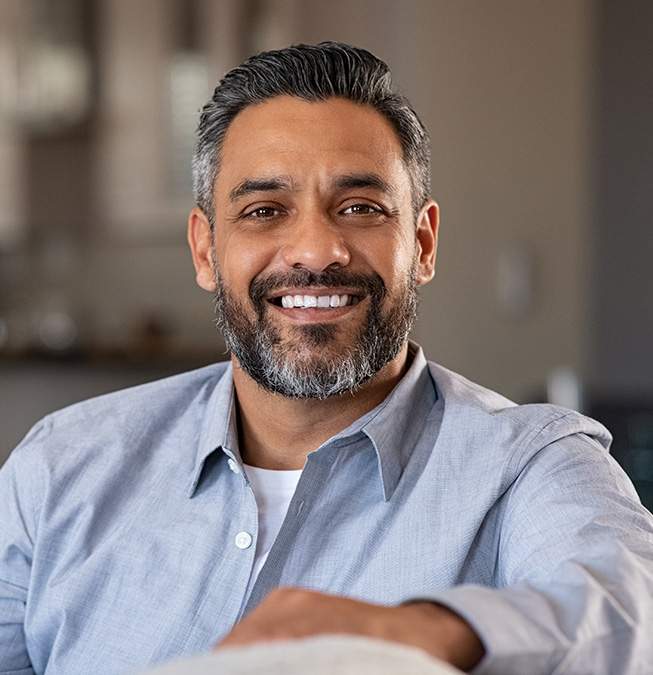- 20% OFF NEW PATIENT APPOINTMENT
- NOW ONLY £76 (USALLY £95)
- BOOK NOW

“The dentist will see you now.” These are the words which tell patients it is time to put down the glossy waiting-room magazine and enter the room with the couch and the bright lights.
But what type of dentist will they see?
The General Dental Council (GDC) recognise 13 dental specialties – a dentist can only call themselves a specialist in one of these particular fields of dentistry if they meet training standards set by the council.
As the American Dental Association only recognises nine dental specialties, you could say that UK dentists are a more specialised group of workers than US ones.
The main purpose of the speciality list is to protect the public from the small minority of dentists who make false claims about their speciality. If their name isn’t on the GDC’s specialist list then they’re not really a specialist.
So what are the 13 dental specialties and what do they mean? Asking around, I found that most people could only guess at most three of the dental specialties. If you can guess more than you are doing well!
The full list
1. Prosthodontics – the speciality of restoring natural teeth and creating natural-looking substitutes or prosthetic teeth to replace damaged or missing teeth. A Prosthodontist will often have studied for an additional three years to become an expert at matters such as placing crowns, bridges and veneers. They will also be familiar with dental implants – these are used to replace teeth which are missing or which need extraction. Dental implants can help prevent problems with the bite and gum disease.
2. Oral surgery – a specialist in this discipline will frequently be a consultant at a dental hospital; they manage patients who need surgical procedures involving the mouth, teeth and jaws and commonly carry out extractions.
3. Orthodontics – is concerned with managing the movement of teeth. Sometimes this is for aesthetic reasons – to improve appearance – and sometimes to improve oral health; reducing vulnerability to decay. An orthodontist will be an expert at fitting braces which re-align teeth and retainers which consolidate this re-alignment.
4. Paediatric dentistry – a paediatric dentist will specialise in looking after the oral health of children (those up to the age of 16).
5. Periodontics – this specialisation concentrates on prevention and treatment of diseases of the gums, the surrounding tissues and the bone around the teeth. A good periodontist should be able to advise you on how to brush and floss your teeth and is unlikely to be a smoker – since nicotine is a major cause of gum disease.
6. Endodontics – management of problems involving the roots of teeth, their surrounding tissues and their pulp (the part containing blood-carrying vessels and nerves). If you need root canal treatment then an endodontist is the person to see.
7. Restorative Dentistry – a dentist who specialises in this will have an in-depth knowledge of endodontics, periodontics and prosthodontics; integrating the three disciplines to restore individuals’ oral health.
8. Oral Medicine – specialists in oral medicine use their knowledge to issue prescriptions which help alleviate and eradicate problems involving the tissues of the mouth, salivary glands and jaws.
9. Special Care Dentistry – involves carrying out treatment to help patients who require special care – individuals who might have impairments, disabilities or complex medical conditions. This dental speciality was only introduced in 2008.
10. Dental Public Health – aims to improve the oral health of communities rather than just individuals. This can be done through educational campaigns and research. These specialists can frequently be found in academic institutions such as universities rather than in dental practices.
11. Oral microbiology – the laboratory is the home of specialists in this field. They are experts at diagnosing infections of the face and mouth; a skill which takes a minimum of five years to acquire.
12. Oral and Maxillofacial Pathology Specialist – this mouthful of a phrase describes a dental professional who diagnoses diseases of the mouth through microscopic examination of diseased tissues.
13. Dental and Maxillofacial Radiology Specialists are experts at imaging the head, the neck, the jaws and the teeth to evaluate diagnosis of dental problems and monitor the effectiveness of treatment. This can be done through imaging techniques such as x-rays.
If you are looking for a new dentist it is an interesting exercise to find out how many of the dentists at the practice you are considering joining have specialties.
London dentist Ethicare has dentists at their practice with specialties including restorative dentistry, prosthodontics, periodontics, oral surgery, oral and maxillofacial pathology and paediatric dentistry. They also specialise in invisible braces such as Inman Aligner and Invisalign.
A reassuringly long list for potential patients to peruse!

Lorem ipsum dolor sit amet, consectetur adipiscing elit, sed do eiusmod tempor incididunt ut labore et dolore magna aliqua. Ut enim ad minim veniam, quis nostrud exercitation ullamco laboris nisi ut aliquip ex ea commodo consequat. Duis aute irure dolor in reprehenderit in voluptate velit esse cillum dolore eu fugiat nulla pariatur.








Sed ut perspiciatis unde omnis iste natus error sit voluptatem
accusantium dolor emquesit voluptatem laudantiu.
Sed ut perspiciatis unde omnis iste natus error sit voluptatem accusantium dolor emquesit voluptatem laudantiu.
I have been really happy with my experience at Ethicare Dental Practice. From the moment I walked in, everyone was kind, reassuring, and professional. They took the time to explain things properly and... Read More
Loved the service, especially being a wheelchair user. They have made me feel very well taken care of, had a tooth removed and they were the first dentists to give me th after care instructions as wel... Read More
I’ve been a patient of Glafcos Tombolis for the past eight years, and I couldn’t be happier. When I first visited his practice, my teeth were in a bad state, and as a nervous patient, I found dent... Read More
Best orthodontist I've seen! Priti took the time to talk through everything with me, gave me a really honest opinion and helped me understand all of the history and future options with my teeth. She w... Read More
Glafcos has been my dentist for many years and I wouldn't consider going anywhere else. He is extremely patient and thorough and makes time to explain all procedures fully and answer any questions. ... Read More